Related Research Articles

The 1848 United States presidential election was the 16th quadrennial presidential election, held on Tuesday, November 7, 1848. In the aftermath of the Mexican–American War, General Zachary Taylor of the Whig Party defeated Senator Lewis Cass of the Democratic Party.

The 1852 United States presidential election was the 17th quadrennial presidential election, held on Tuesday, November 2, 1852. Democrat Franklin Pierce defeated Whig nominee General Winfield Scott.
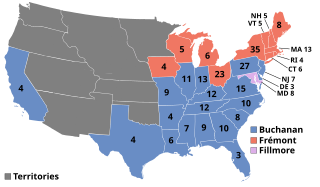
The 1856 United States presidential election was the 18th quadrennial presidential election, held on Tuesday, November 4, 1856. In a three-way election, Democrat James Buchanan defeated Republican nominee John C. Frémont and Know Nothing nominee Millard Fillmore. The main issue was the expansion of slavery as facilitated by the Kansas–Nebraska Act of 1854.

The Democratic National Committee (DNC) is the governing body of the United States Democratic Party. The committee coordinates strategy to support Democratic Party candidates throughout the country for local, state, and national office, as well as works to establish a "party brand". It organizes the Democratic National Convention held every four years to nominate a candidate for President of the United States and to formulate the party platform. While it provides support for party candidates, it does not have direct authority over elected officials. When a Democrat is president, the White House controls the Committee. According to Boris Heersink, "political scientists have traditionally described the parties’ national committees as inconsequential but impartial service providers."
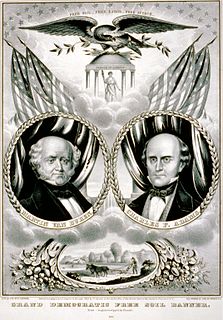
The Free Soil Party was a short-lived coalition political party in the United States active from 1848 to 1854, when it merged into the Republican Party. The party was largely focused on the single issue of opposing the expansion of slavery into the western territories of the United States.

William Freame Johnston was the 11th Governor of Pennsylvania, from 1848 to 1852. A lawyer by training, Johnston became district attorney of Westmoreland County at the age of 21 in 1829. He was elected to the Pennsylvania state legislature and switched from the Democratic Party to the Whig Party in 1847 to run for the Pennsylvania Senate.
The 1852 Democratic National Convention was a presidential nominating convention that met from June 1 to June 5 in Baltimore, Maryland. It was held to nominate the Democratic Party's candidates for president and vice president in the 1852 election. The convention selected former Senator Franklin Pierce of New Hampshire for president and Senator William R. King of Alabama for vice president.
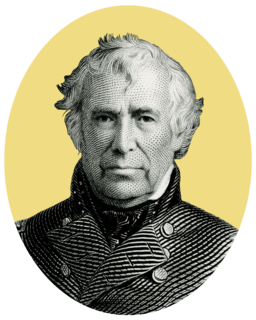
The 1848 Whig National Convention was a presidential nominating convention held from June 7 to 9 in Philadelphia. It nominated the Whig Party's candidates for president and vice president in the 1848 election. The convention selected General Zachary Taylor of Louisiana for president and former Representative Millard Fillmore of New York for vice president.
Benjamin Franklin Hallett was a Massachusetts lawyer and Democratic Party activist, most notable as the first chairman of the Democratic National Committee.

Jehu Glancy Jones was a Democratic member of the U.S. House of Representatives from Pennsylvania. Often called

The 1896 New York state election was held on November 3, 1896, to elect the governor, the lieutenant governor and a judge of the New York Court of Appeals, as well as all members of the New York State Assembly. Besides, a constitutional amendment on forestry was proposed, and rejected with 321,486 votes for and 710,505 against it.
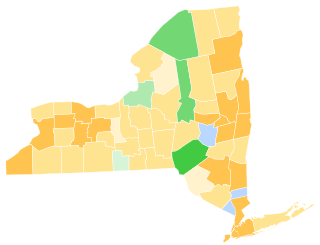
The 1848 New York state election took place on November 7, 1848, to elect the governor, the lieutenant governor, a Canal Commissioner and an Inspector of State Prisons, as well as all members of the New York State Assembly.
The 1876 Democratic National Convention assembled in St. Louis just nine days after the conclusion of the Republican National Convention in Cincinnati.
The 1848 Democratic National Convention was a presidential nominating convention that met from Monday May 22 to Thursday May 25 in Baltimore, Maryland. It was held to nominate the Democratic Party's candidates for President and Vice president in the 1848 election. The convention selected Senator Lewis Cass of Michigan for President and former Representative William O. Butler of Kentucky for Vice President.
The Liberty Party was a minor political party in the United States in the 1840s. The party was an early advocate of the abolitionist cause and it broke away from the American Anti-Slavery Society (AASS) to advocate the view that the Constitution was an anti-slavery document. William Lloyd Garrison, leader of the AASS, held the contrary view, that the Constitution should be condemned as an evil pro-slavery document. The party included abolitionists who were willing to work within electoral politics to try to influence people to support their goals. By contrast, the radical Garrison opposed voting and working within the system. Many Liberty Party members joined the anti-slavery Free Soil Party in 1848 and eventually helped establish the Republican Party in the 1850s.

James Tillinghast Archer was an American lawyer and politician from the state of Florida. Archer held a number of statewide offices.

The 1849 New York state election was held on November 6, 1849, to elect the Secretary of State, the State Comptroller, the Attorney General, the State Treasurer, the State Engineer, a Judge of the New York Court of Appeals, a Canal Commissioner and an Inspector of State Prisons, as well as all members of the New York State Assembly and the New York State Senate.
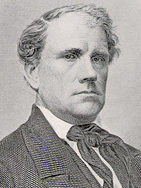
In the 1857 Chicago mayoral election, Republican John Wentworth defeated Democrat Benjamin F. Carver by a ten-point margin.

The 1834 Massachusetts gubernatorial election was held on November 10.

The 1848 Massachusetts gubernatorial election was held on November 13, 1848.
References
- ↑ Proceedings of the Democratic National Convention. Robert Armstrong. 1852.